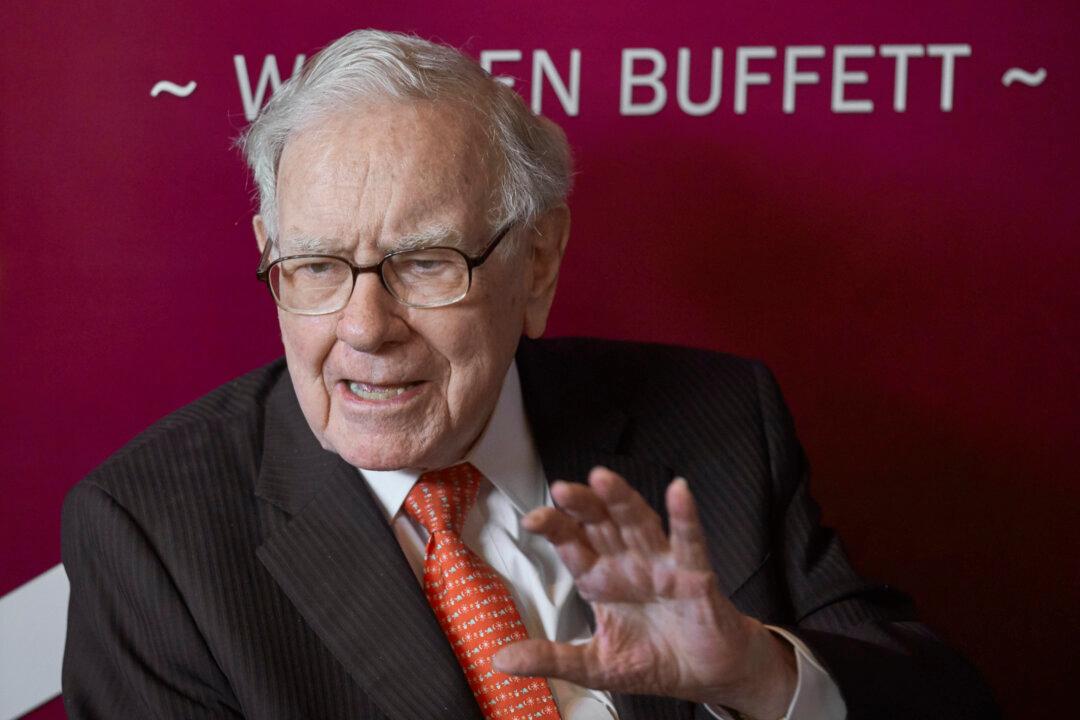Warren Buffett’s Berkshire Hathaway has trimmed its stake in Bank of America by another 9.5 million shares, worth around $382 million, dropping his company’s holdings in the bank to less than 10 percent, a key reporting threshold.
Berkshire disclosed the latest sale in a regulatory filing with the U.S. Securities and Exchange Commission (SEC) on Oct. 10, bringing the total value of Bank of America stock that Buffett’s company has sold in a selling spree that began in July to roughly $10 billion.





